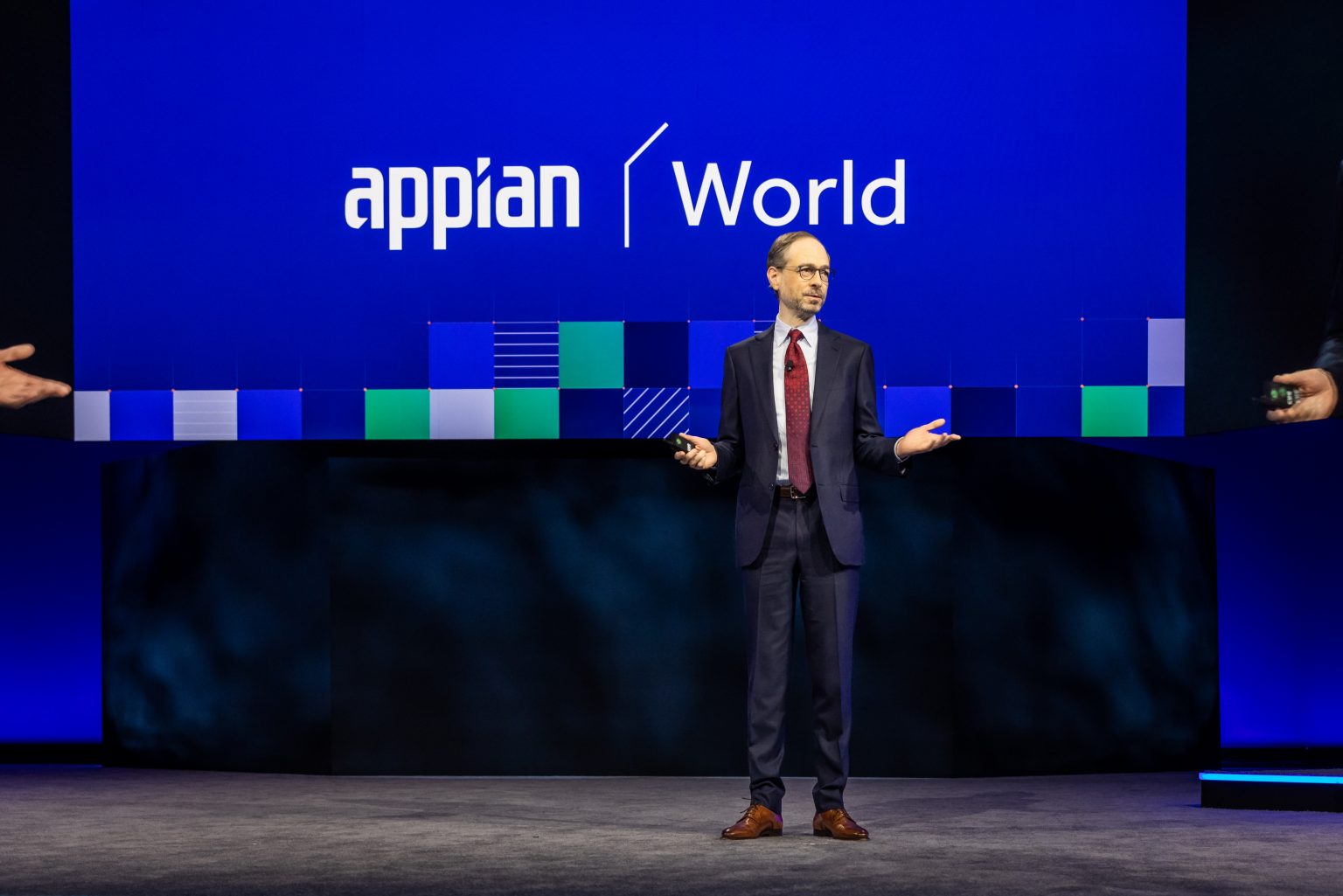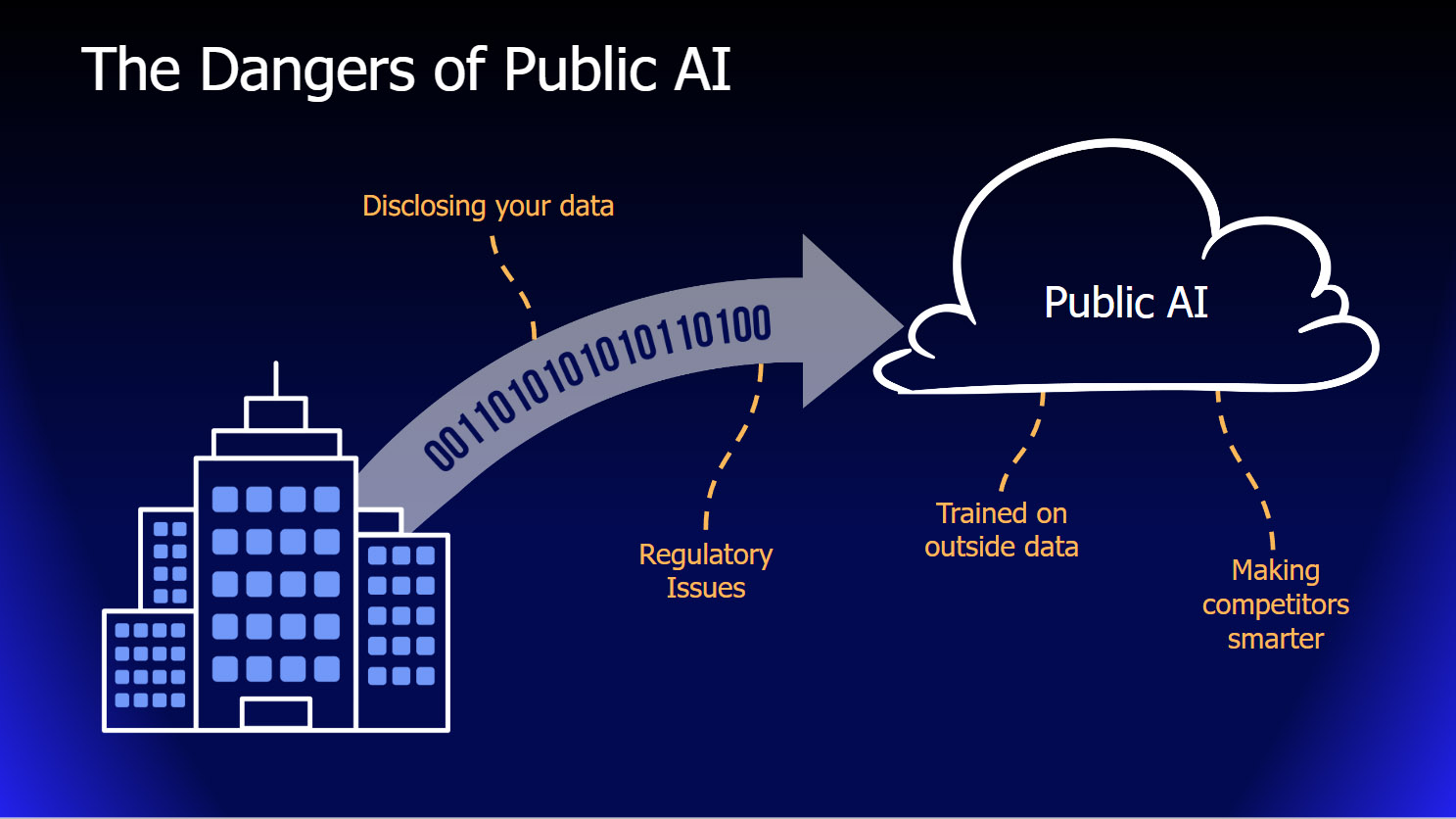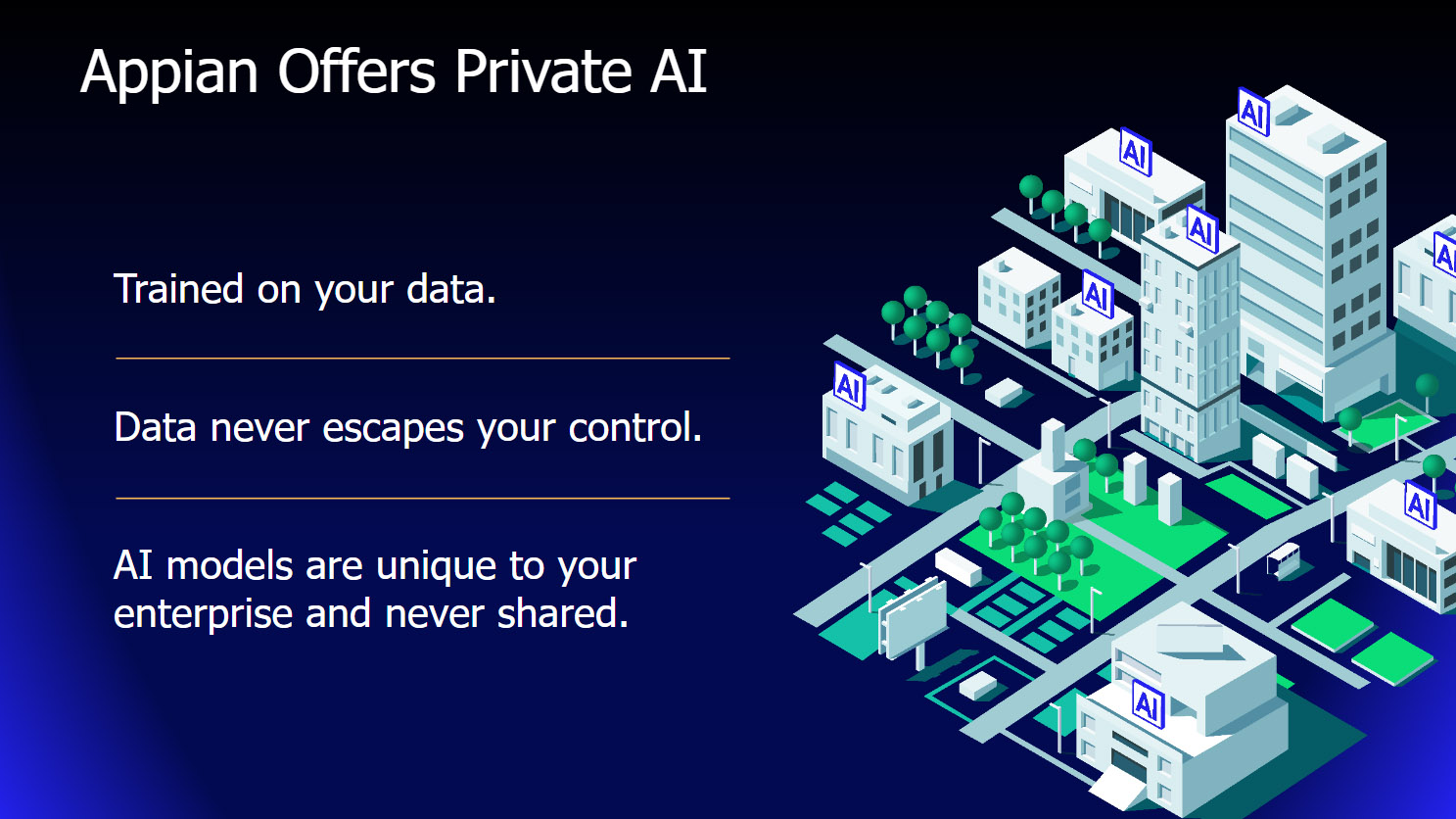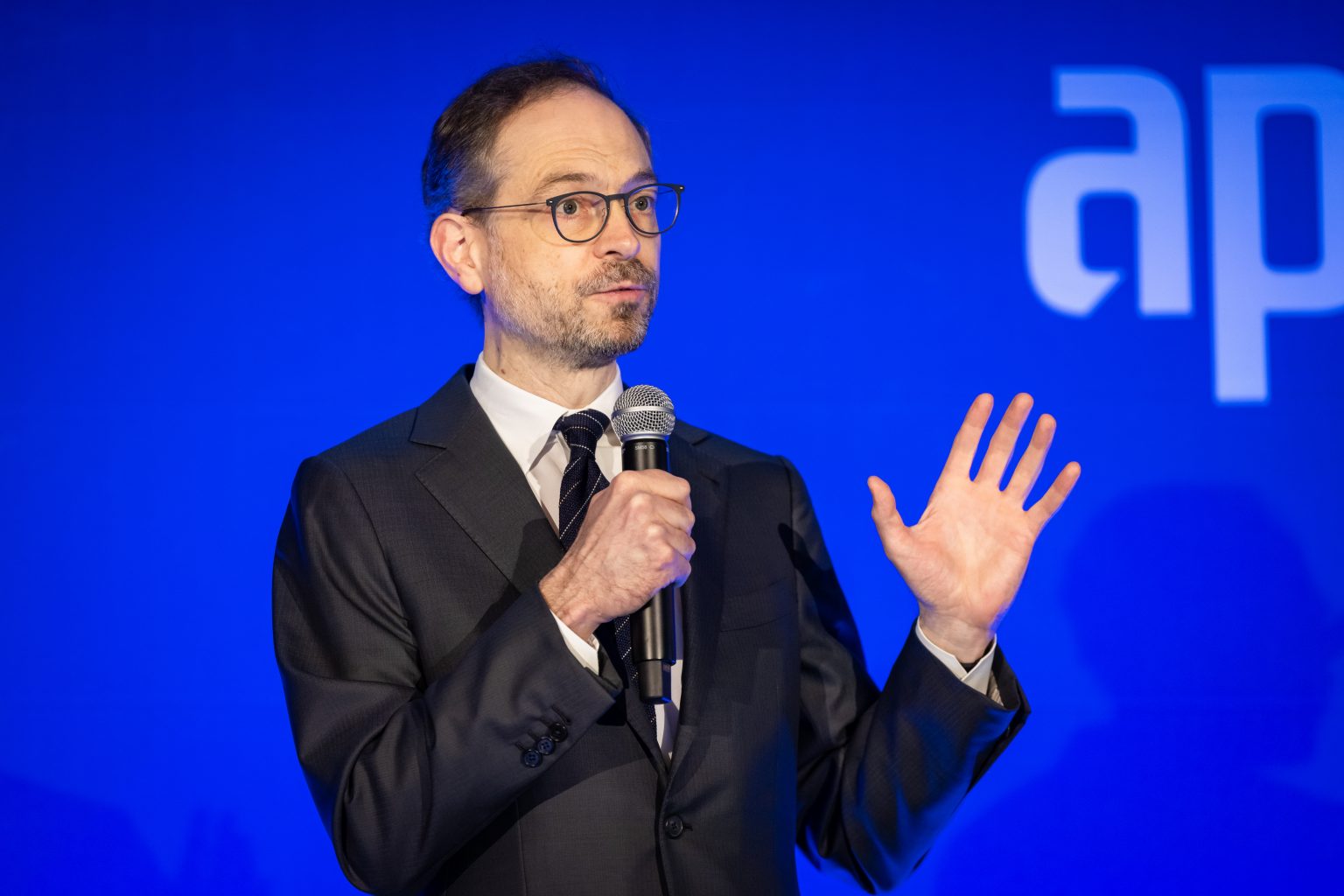Silicon Spain was invited to the Appian World Congress 2023 held in San Diego, where Appian demonstrated the main capabilities of its increasingly complete platform, that can respond to the automation of processes from end to end.
Among the new capabilities on show was the Appian Data Fabric , a “virtual database” (as Matt Calkins, CEO of the company calls it), which had been announced at the end of 2022, and which is experiencing impressive uptake by new customers.
Indeed, it has already been adopted by 94 percent of new Appian customers, according to the cloud computing and enterprise software specialist.

Public AI vs Private AI
The focus of this article is the second major theme of the Appian World 2023 congress, namely that of artificial intelligence.
AI of course is increasingly present in technologies used by organisations and businesses, but artificial intelligence is also generating debate due to some of its more controversial aspects.
These issues are what Appian CEO and co founder Matt Calkins expanded upon during his interview with Silicon Spain.
As the adoption of AI surges ahead, there is an issue that is not usually addressed but that Calkins put into focus considering the debate about AI.
Calkins pointed out that when it comes to training AI models and obtaining results, companies are often giving up their data to third companies, i.e. those businesses that process the information to return solutions proposed by artificial intelligence.
It is clear companies extract great value from this data, but it is also clear that the AI providers rely and utilise this information in order to feed their AI algorithms, which are becoming increasingly efficient.
The question asked by Calkins is who is the main beneficiary in these processes?

“There are many people using artificial intelligence algorithms like ChatGPT. They think it’s an incredible technology and it doesn’t matter to them to give their data to an organisation like Microsoft so that this architecture ‘works its magic’ and they deliver valuable information,” said Calkins. “But privacy problems are also being generated, including regulatory problems, because these companies are giving away data that we don’t know where it will end up.”
Effectively, this information will probably end up feeding AI algorithms in order to improve the results, but if it is stored and retained, it could also serve for other tasks outside the control of the data owner.
In this sense, Calkins added that companies that use these public AI algorithms are losing their advantage in terms of competition: “they use artificial intelligence that is also being trained with its own data, and that potentially is being sold to competitors. In practice, this data is being trained in competition, which is why its value is lost and privacy is lost.”
This is where the CEO of Appian believes the concept of private AI (which intends to comply with privacy regulations, and above all rely on AI training) fits in with the purposes of each company, not generic purposes.
“Appian supports private AI so that companies have their own algorithms interwoven with internal data,” explained Calkins. “In this way, information from the organisations is not revealed and only benefits the said organisation, not third parties.”

The future of AI, according to Appian’s vision, is through training on private data .
“Companies can utilise a basic open source artificial intelligence system to be trained with their own data, in such a way that it is customised for the real needs of each company. There are many reasons why companies use their own custom business applications. And with the artificial intelligence it will happen exactly the same, it will be personalised”.
This commitment to private AI is a key part of Appian’s strategy to incorporate artificial intelligence into its platform.
Calkins gave this example: “Let’s say you have a specific form that your customers usually fill out. You have seen a million of those forms, so the idea is to train your AI with a million of those forms so that it is very good at extracting data and understanding and valuing all that information.”
Low-code AI
Appian doesn’t just want to focus on this artificial intelligence training based on the internal data of the companies that use it, but it also intends to go further by injecting low-code into these design and training processes.
The objective is, again, to democratise the use of corporate data, so as to automate it through artificial intelligence algorithms that are easy to use and implement.
The software provider for process management specialises in low-code, and now those customers that want to use these technologies, can also develop automated processes based on artificial intelligence algorithms in a simple way, without the need to write lines of code or to have in-depth expertise.
The first step is the one that was presented during the congress: namely Appian AI Skill Designer and the integration of generative AI for process automation.
“The potential benefits of artificial intelligence for automating processes are immense, but only if organisations can successfully incorporate complex AI technologies into their digital workflows,” Calkins said during his keynote speech at Appian World 2023. “Appian AI Skill Designer and our integration of OpenAI are great advances that democratise access to the benefits of AI.”

Appian revealed that it has worked to ensure that natural language processing (NLP) based on GPT understands how to create automations with the Appian platform. Using OpenAI integration, Appian is developing several AI-backed generative capabilities to increase automation with an emphasis on improving the productivity of developers in daily activities.
Among the benefits for developers are:
- Use of generative AI and natural language to automatically create digital forms from an existing form – with instructions in natural language. For example, taking an existing document, such as a business license application, and applying generative AI to build a secure digital form that can be used to instantly digitise a business in Appian.
- Use of generative AI to understand how complex applications work. When examining the design of a software application, generative AI can analyse the design to provide descriptions in natural language of the operation of an application, which brings advantages such as autogeneration of software documentation.
- Generative AI connection with Appian Data Fabric. Appian’s Data Fabric technology connects business data into a single, secure virtual data model. With a connection between generative AI and Data Fabric, users can ask questions about their business data in natural language. For example, a user can ask: “What businesses are at risk of losing customers in the next 30 days?”. Generative AI can provide recommendations and insights that drive proactive action on the Appian platform.
Calkins ended his interview with Silicon Spain with a blunt prediction: “my prediction is that the private AI will win. This is going to be the dominant use model for AI, which is very different from what people are predicting today. The common mentality is that the AI is going to be public and is going to entrench the leading providers, which will allow them to benefit enormously from it. I would say that there are good reasons why that is not clear.”




